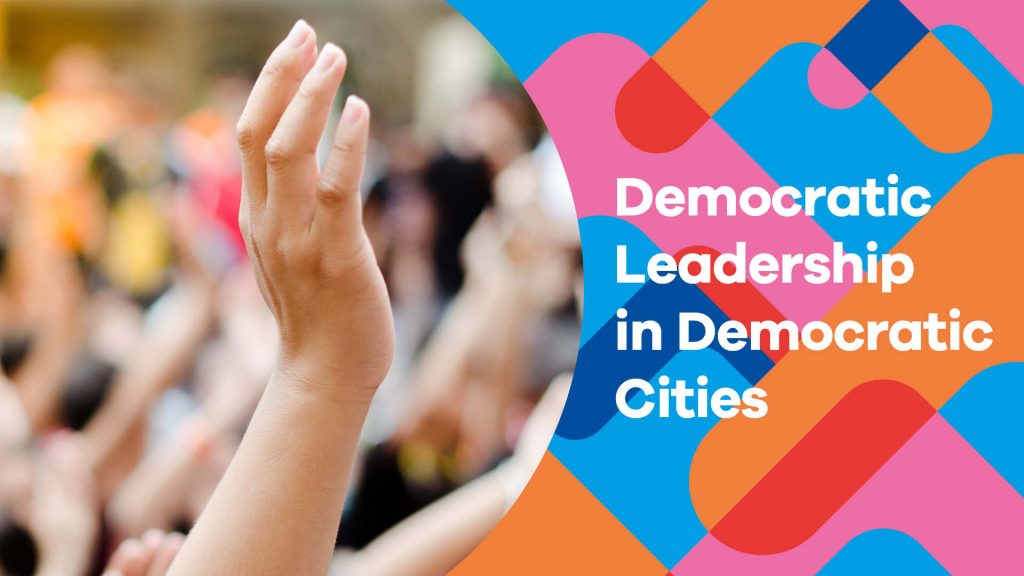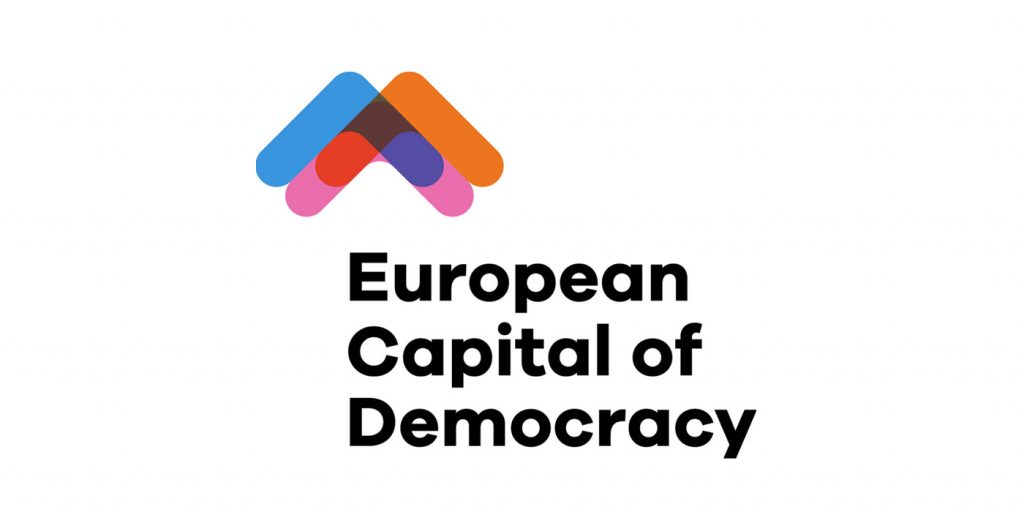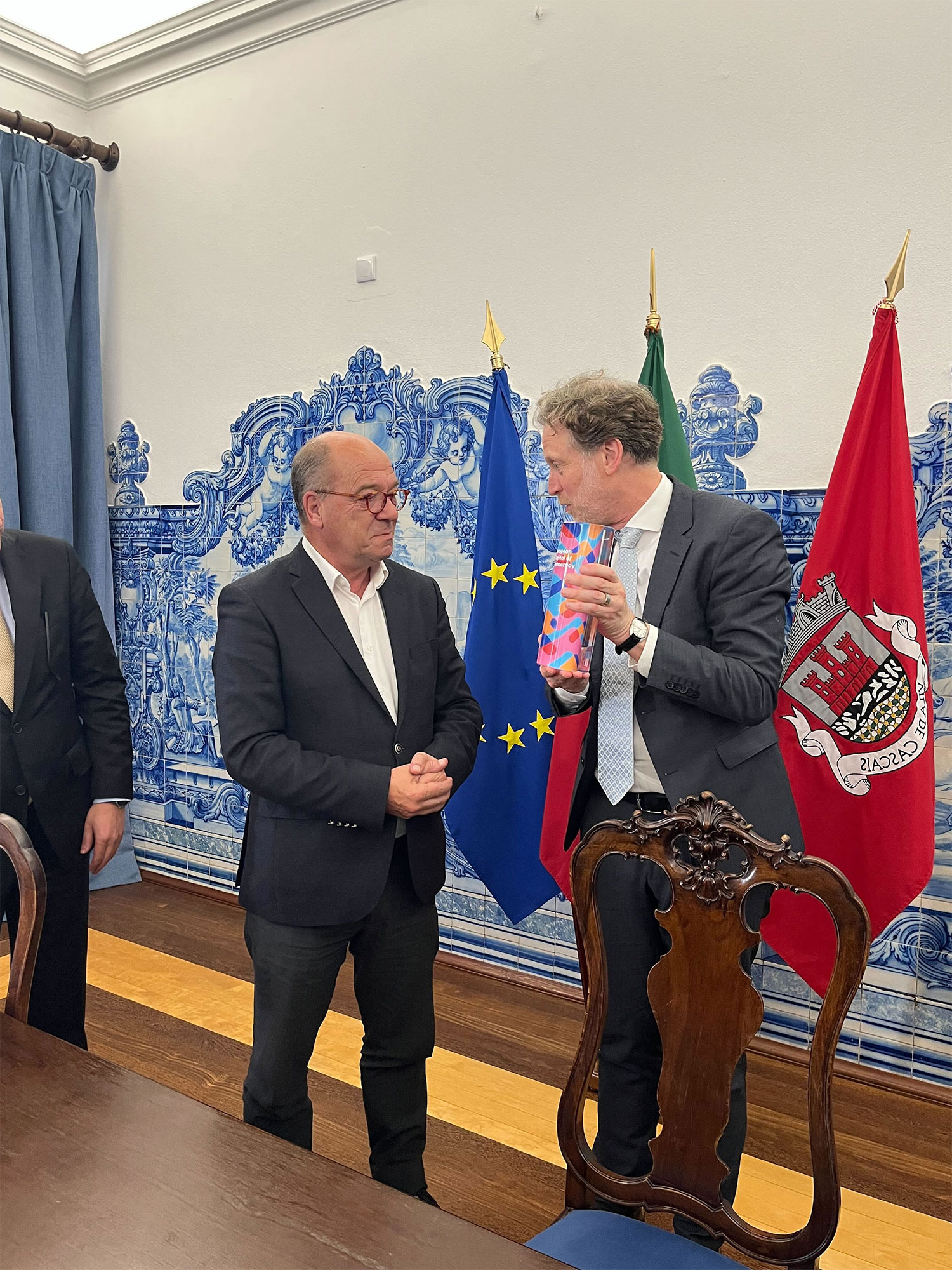ABOUT DEMOCRATIC LEADERSHIP IN DEMOCRATIC CITIES
“I wake up every day and ask myself: what can we do to support democracy at the local, national and EU level? What does it mean to act as a democrat every single day?” Aleksandra Dulkiewicz, Mayor of Gdansk in Poland and a great supporter of democracy in her country, gets to the heart of what worries city leaders in times of mistrust in politicians and political institutions. In three press round tables on 18 September 2020, with nine high-level politicians from eight European countries, we discussed the building blocks that are necessary to jointly build a European Capital of Democracy.
The challenge of faith in democracy
In our previous blog article, we described new forms of deliberative and participatory democracy which allow for more civic participation in political decision-making in cities. Many European mayors and city councillors have understood that they need to respond to citizens’ demands and ideas, not just in words but in action. “We used to receive questions from the citizens, but we did not answer them,” remembered Bratislava’s mayor Matúš Vallo. A crucial element, Vallo continued, is to foster real participation and thus to build trust between citizens and political decision makers. But how can trust be built? According to the recent Democracy Perception Index, 78% of the worlds’ population believe in democracy as the best political form, whereas an average of 35% view the level of democracy in their country as not being sufficient. Dubravka Šuica, European Commission Vice-President for Democracy and Demography, stated during the press round tables that trust in democracy cannot be taken for granted and that governments need to sustain the relationship of trust through their role as democratic leaders.
Democratic leadership at the local level
Democratic leadership first and foremost sets the institutional framework for participatory political decision-making. These processes help city leaders to benefit from the potential of citizens and to take decisions on their behalf. Jürgen Czernohorszky, Executive City Councillor in Vienna, on the project Werkstatt Junges Wien which created a cross-sectoral children and youth strategy based on the expertise of 22,500 young people: “We as adults can benefit a lot from a process like this. It did not just empower the kids, it empowered the city’s government and society as well.”
“We used to receive questions from the citizens, but we did not answer them.”
Matúš Vallo, Mayor of Bratislava, Slovakia
Additionally, democracy means to take decisions in collaboration with other political parties on the basis of citizens’ needs. This implies “cross-party and even cross-ideological alliances that can help to find consent and bring people together” (Kostas Bakoyannis, Mayor of Athens). Several participants of the round table discussions underlined the necessity to safeguard transparency on every occasion. The work of the local government is to be made visible and transparent to avoid misinformation and loss of confidence. Mayor Matúš Vallo added that he personally devotes a great amount of time and energy to communicate with different groups who have contrary, but legitimate, interests to find consensus.
Nevertheless, democracy is at risk if semi-information, misinformation or fake information is being poured into the public discourse. Populists often use such opportunities to introduce their politics as if that is aiming at the truth and “at deepening democracy whereas it is just dismantling the checks and balances”, as Gergely Karácsony, Lord Mayor of Budapest pointed out. The city of Budapest decided to share all information with the city’s residents and thus to dismantle all populist attacks. Several years ago, the city of Gdansk launched an open online programme which makes relevant data sets on city finances, demographics, public transport, investment, environment, etc. available to everybody. Providing access to such data also means that the municipality trusts in the citizens’ common sense to deal with the information responsibly. This key aspect corresponds with the observation by Jon Alexander, Co-Founder of the New Citizenship Project, shared in his keynote speech at this year’s Athens Democracy Forum: the great challenge is not “people trusting the government, but government trusting the people.”
City leaders have to trust their citizens
Broken sidewalks need to be fixed immediately, faulty playground equipment that bears danger needs to be renovated without delay. A mayor has many responsibilities and has to deal with all day-to-day problems in a city, “irrespective of the particular political situation or affiliation or ideological paradigm.” Zdeněk Hřib, Lord Mayor of Prague opened his statement during the launch event by stating that mayors are accountable for the wellbeing of their citizens. The many forms of citizen participation also help political decision makers to gain insights into people’s concerns – when they take them seriously. In 2019, the city of Gdansk held a series of public round tables at the city centre and invited residents to interact and discuss future visions for the city, together with mayor Alexandra Dulkiewicz. Many city representatives and mayors are already offering public consultation, thus giving citizens the confidence that their voices are being heard – an honest confession from both sides to be ready for more democracy.
The Lord Mayor of Frankfurt in Germany, Peter Feldmann, recently changed his title to City Mayor. Feldmann intends to be closer to the citizens and plans direct appointments in the respective city districts instead of taking decisions from a distance, in the city hall: “I want to know where the shoe pinches and discuss the best solutions on the spot.”
City leaders all over Europe know that democratic leadership is no PR strategy, it rather means to persistently act according to the values of collaboration, transparency and trust. It is not always easy to put the collected words and ideas into action, but it is possible. An abundance of best practice already in place all over Europe proves it.




